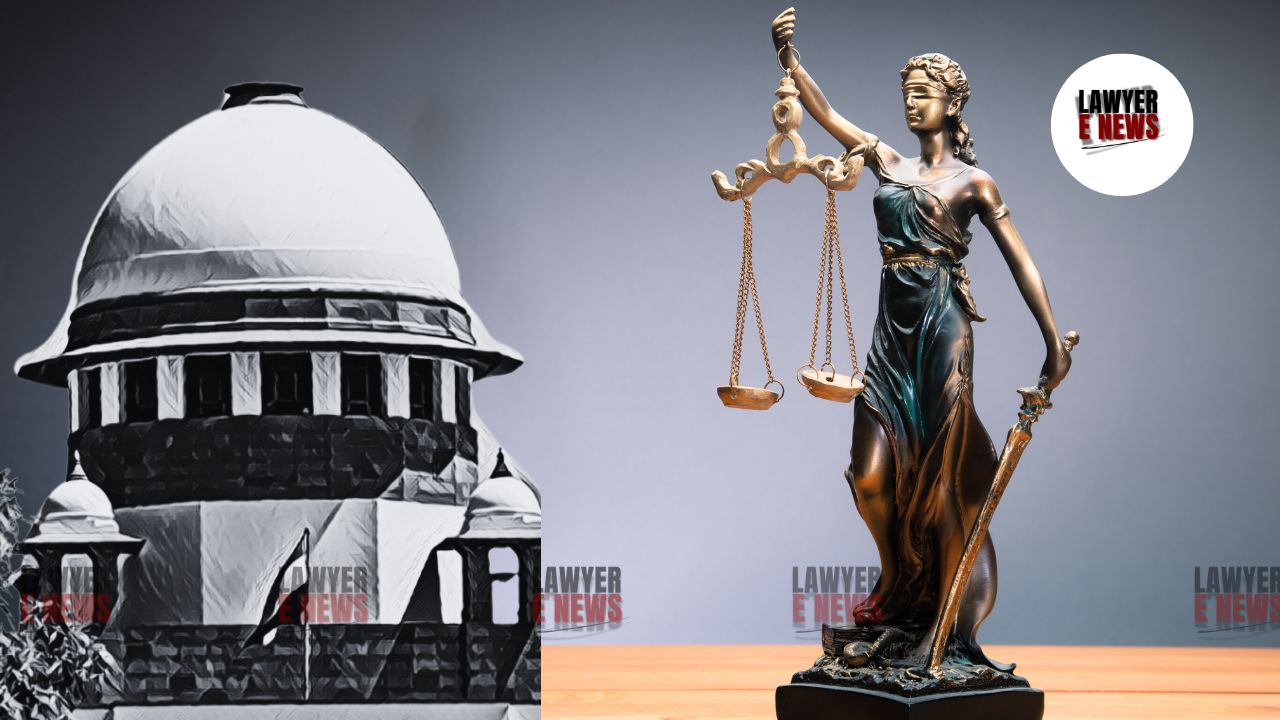-
by Admin
15 February 2026 5:35 AM



"We Are Equal Stakeholders in the Administration of Justice": SCBA Criticizes Lack of Consultation on Changes to Supreme Court Emblem and Statue. On October 22, 2024, the Executive Committee of the Supreme Court Bar Association (SCBA) passed a resolution expressing its strong objection to recent "unilateral" modifications made to the Supreme Court’s emblem and the iconic statue of Lady Justice, criticizing the lack of consultation with the Bar. The SCBA stated that despite being an integral part of the justice system, they were not consulted regarding these changes, nor were they informed about the rationale behind them.
The changes, which were first unveiled on September 1, 2024, as part of the 75th-anniversary celebrations of the Supreme Court of India, include a redesign of the Supreme Court’s emblem and flag. Moreover, it has recently come to light that the traditional statue of Lady Justice, historically adorned with a blindfold to symbolize impartiality, has also been altered. The new version of the statue no longer features a blindfold and instead holds a book representing the Constitution of India in place of the sword traditionally associated with justice.
"Unilateral Changes Made Without Our Knowledge": SCBA Criticizes Lack of Transparency
The SCBA’s resolution emphasized that these modifications were made without consulting the Bar, despite their role as equal stakeholders in the administration of justice.
"We are equal stakeholders in the administration of justice, but these changes were never brought to our attention. We are completely unaware of the rationale behind these alterations," the SCBA resolution read.
The association voiced its displeasure over the process and raised concerns about the transparency behind such significant changes to symbols associated with the judiciary. The SCBA expressed its belief that changes to symbols representing the judiciary should involve consultation with all stakeholders, including the legal fraternity.
Lady Justice Statue Altered: From Blindfolded Impartiality to Constitutional Representation
One of the primary concerns raised by the SCBA is the alteration to the iconic statue of Lady Justice, traditionally displayed in the Judges' library. Historically, the statue of Lady Justice, also known as Justitia, has worn a blindfold to symbolize impartial justice. However, the new statue no longer features a blindfold and instead holds a book representing the Constitution of India, symbolizing the primacy of constitutional law. The sword, which traditionally represents the enforcement of justice, has also been removed.
The SCBA’s objection to this alteration stems from the symbolic significance of the blindfold, which has long represented the ideal that justice should be delivered without bias or prejudice. The removal of this element, they argue, alters the foundational message that the statue is meant to convey.
SCBA's Opposition to Proposed Museum in Judges' Library
In addition to the emblem and statue concerns, the SCBA reiterated its objection to the proposed transformation of the former Judges' library into a museum. The association had previously requested that the space be converted into a library and café-lounge for Bar members, arguing that the existing cafeteria is inadequate to meet the needs of the legal community.
The SCBA expressed its discontent with the ongoing work to establish the museum despite their earlier objections.
"We are concerned that despite our objection raised against the proposed Museum in the erstwhile Judges library, work has started for the museum," the SCBA’s resolution stated.
The Bar association further emphasized the need for a dedicated space for its members, stating,
"Whereas we had demanded a Library, Cafe cum Lounge for the members of the Bar as the present cafeteria is inadequate to cater to the needs of the members of the Bar, we unanimously oppose the proposed museum in the High Security Zone and reiterate our demand for a Library and a Cafe cum Lounge for our members."
This resolution was endorsed by all 21 members of the SCBA's Executive Committee.
Upcoming Inauguration of Advocates' Library and Welfare Centre
The SCBA’s concerns come on the same day that Chief Justice D.Y. Chandrachud is scheduled to inaugurate the Advocates' Library and Advocates' Welfare Centre located on the eighth floor of the Supreme Court's D-block Administrative Building Complex. The new library and welfare center are part of efforts to expand facilities for the legal fraternity, but the SCBA has raised concerns that these developments do not fully address their needs.
The SCBA’s resolution highlights ongoing tensions between the Bar and the judiciary regarding decisions affecting shared judicial spaces and symbols. The association’s insistence on consultation and collaboration reflects a broader desire for greater inclusion in decisions that impact the legal community. As the judiciary continues to make symbolic and structural changes, the SCBA is calling for a more transparent and participatory process that includes the voices of legal practitioners.
Date of Resolution: October 22, 2024
